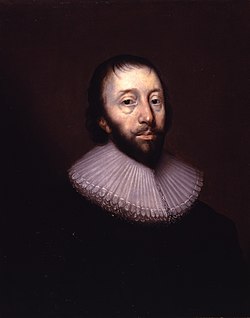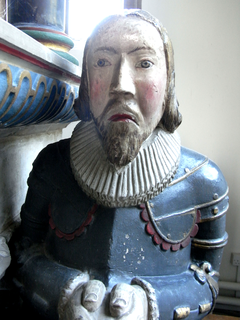Related Research Articles

Sir Dudley Digges was an English diplomat and politician who sat in the House of Commons between 1610 and 1629. He was also a "Virginia adventurer," an investor who ventured his capital in the Virginia Company of London. His son Edward Digges would go on to be Governor of Virginia.

Sir Thomas Widdrington SL was an English judge and politician who sat in the House of Commons at various times between 1640 and 1664. He was speaker of the House of Commons in 1656.

Sir John Glynne KS was a Welsh lawyer of the Commonwealth and Restoration periods, who rose to become Lord Chief Justice of the Upper Bench, under Oliver Cromwell. He sat in the House of Commons at various times between 1640 and 1660.
Sir Thomas Bowyer, 1st Baronet was an English politician who sat in the House of Commons at various times between 1614 and 1642. He supported the Royalist cause in the English Civil War.
Sir William Morgan was a Welsh landowner and politician who sat in the House of Commons of England between 1659 and 1680.
Sir Richard Onslow was an English politician who sat in the House of Commons at various times between 1628 and 1664. He fought on the Parliamentary side during the English Civil War. He was the grandson of one Speaker of the House of Commons and the grandfather of another, both also called Richard Onslow.

Sir John Glanville the younger, was an English politician who sat in the House of Commons at various times between 1614 and 1644. He was Speaker of the English House of Commons during the Short Parliament. He supported the Royalist cause in the English Civil War.

Sir Francis Popham (1573–1644) of Wellington, Somerset and Littlecote, Berkshire, was an English soldier and landowner who was elected a Member of Parliament nine times, namely for Somerset (1597), Wiltshire (1604), Marlborough (1614), Great Bedwin (1621), Chippenham 1624, 1625, 1626, 1628–29), and for Minehead (1640–1644).
Sir John Wray, 2nd Baronet was an English politician who sat in the House of Commons at various times between 1614 and 1648. He supported the Parliamentary cause in the English Civil War.
Sir Francis Barnham (1576–1646) was an English politician who sat in the House of Commons at various times between 1604 and 1646. He supported the Parliamentary cause in the English Civil War.
Samuel Gott was an English politician who sat in the House of Commons of England between 1645 and 1648 and between 1660 and 1661.
Sir Thomas Cheek, Cheeke or Cheke was an English politician who sat in the House of Commons in every parliament between 1614 and 1653.
John Bulkeley was an English politician who sat in the House of Commons at various times between 1640 and 1662.
Sir Charles Le Grosse was an English politician who sat in the House of Commons at various times between 1628 and 1653.
Sir William Uvedale was an English politician who sat in the House of Commons at various times between 1614 and 1645. He supported the Royalist cause in the Civil War.

Sir Gilbert Hoghton, 2nd Baronet was an English politician who sat in the House of Commons variously between 1614 and 1640. He was a Royalist leader during the English Civil War.
Sir Henry Peckham (1615–1673) was an English politician who sat in the House of Commons at various times between 1654 and 1673.
Sir Henry Spiller was an English office-holder, landowner and politician who sat in the House of Commons between 1614 and 1629. He supported the Royalist cause in the English Civil War.
Thomas Leedes was an English politician who sat in the House of Commons from 1640 to 1642. He supported the Royalist cause in the English Civil War and was killed in action fighting for the King.
During the Protectorate period (1653–1659) of the Commonwealth of England, the Lord Protector reserved the power previously held by the monarch to confer knighthoods, baronetcies and peerages.
References
- 1 2 Dugdale - Visitation of the County of York
- ↑ Knights of England
- ↑ 'Parishes: Piddinghoe', A History of the County of Sussex: Volume 7: The rape of Lewes (1940), pp. 66-69. Date accessed: 18 February 2012
- 1 2 "LEEDES, Sir John (c.1591-1658), of Wappingthorne, nr. Steyning, Suss. and Whitehall". History of Parliament Trust. Retrieved 21 April 2019.
- ↑ Browne Willis Notitia parliamentaria, or, An history of the counties, cities, and boroughs in England and Wales: ... The whole extracted from mss. and printed evidences 1750 pp176-239
| Parliament of England | ||
|---|---|---|
| Preceded by Lord Howard of Effingham Thomas Shelley | Member of Parliament for New Shoreham 1621–1621 With: Sir John Morley | Succeeded by Inigo Jones Sir John Morley |